News - Archive
Webinar:How can current EU policy initiatives pave the way towards treatment optimisation as part of health systems?
- Details
Save-the-date for an interactive webinar hosted by MEP Maria da Graca Carvalho and MEP Dolors Montserrat on 3 February 2021 from 15:00-17:00 CET.
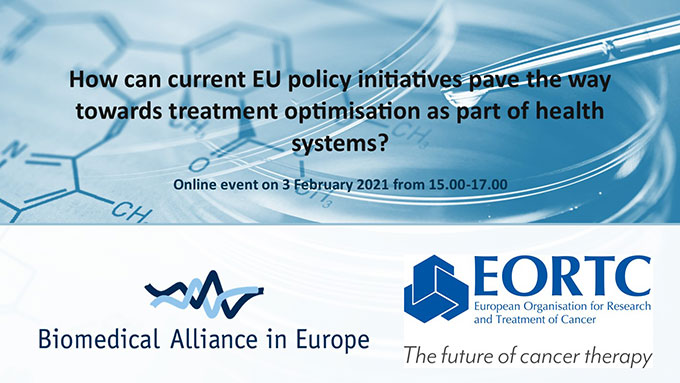
The EORTC and the BioMed Alliance, together with key members of the European Parliament, will organise a webinar bringing together important health stakeholders to share fresh and diverse perspectives on what can be implemented in the current EU policy programmes to advance Treatment Optimization as part of health systems.
The discussion is timely needed considering the current health challenges and the preparation of the ambitious EU Health Union programme and its policy and legislative measures such as the Pharmaceutical Strategy, the upcoming Horizon Europe, the EU4Health programme, and Europe's Beating Cancer Plan.
Recent health threats such as COVID-19 demonstrated the urgent need to have a healthcare system that places the patient at the centre and has the ultimate goal to solve clinical issues. The drug-driven approach tends to dominate treatment development in oncology and a similar tendency is seen in other medical specialities. Thus, important aspects relating to the use of novel therapies in real-world settings are neglected throughout the process such as: optimal dose, duration, sequence, combination, and quality of life. New drugs reaching the market is not an end, but a start. Treatment optimisation plays an important role in improving the way treatments are utilised in real-world conditions through the conduct of studies. These studies can provide an answer to one or multiple of the above-mentioned clinical research questions.
The agenda is available here.
You can register to the online event here and we very much look forward to welcoming you!
BioMed Alliance members & COVID-19
- Details
The COVID-19 Pandemic has all elements to become one of the biggest health challenges that EU health systems and societies have faced in the past years. In these precarious times, the BioMed Alliance is closely following the developments related to COVID-19 in Europe. We urge everyone to take precautions and to follow the advice of the relevant authorities.
We applaud the efforts of health professionals and researchers around Europe and the rest of the world to contain this crisis. They should receive all the necessary support from policy makers, authorities and the public.
Update December 2020
- Details
To mark the end of 2020, we would like to share a festive end-of-the-year Update with you. In this December edition you can find a brief summary of our activities in 2020 and a preview of what lies ahead in 2021.
Update November 2020
- Details
Our November Update provides insights on BioMed Alliance activities and EU policy developments that occurred during this month. This time you will find more information about: our General Assembly, our new member ESHG, the BioMedScape webinar, our work on the revision of the Code of Conduct and creation of a new DoI form, EU proposals for a EU Health Union, the negotiations on the next EU budget, upcoming activities and members’ news.
ESHG joins BioMed Alliance
- Details
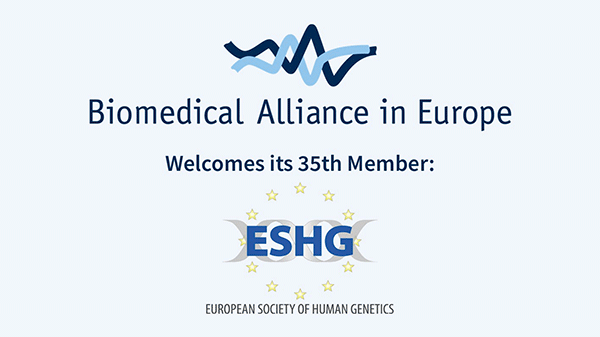
The BioMed Alliance continues to grow and is excited to welcome the European Society of Human Genetics (ESHG) to its membership base. The European Society of Human Genetics joined in November, just a couple of weeks before our General Assembly celebrating the 10 years of BioMed. It is the 35th member of the Alliance.
ESHG was founded in 1967 and its aims are to promote research in basic and applied human and medical genetics, to ensure high standards in clinical practice and to facilitate contacts between all persons who share these aims. ESHG strives for the integration of scientific research and its implementation in the clinical field as well as for education of specialists and the public in all areas of medical and human genetics. It gathers today around 3,000 affiliated members.
'EU Health Summit 2020: Time for action'
- Details
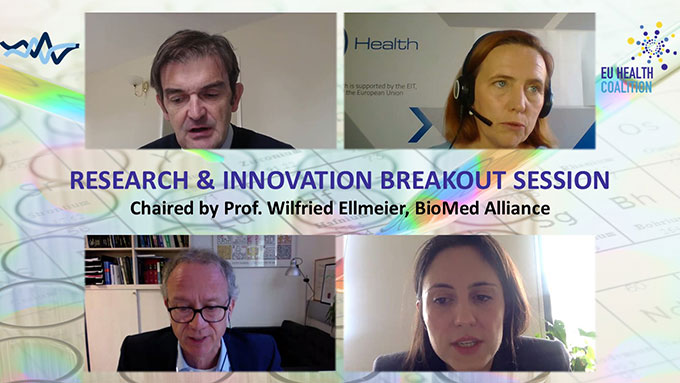
The 'EU Health Summit 2020: Time for action' on 26 October was a multi-stakeholder event which aimed to develop implementing actions based on a set of 10 recommendations the future of health in Europe. The event was very successful, gathering more than 600 participants, and featuring among other speakers Commissioner Stella Kyriakides and German Health Minister Jens Spahn. They pointed out their vision on the future European healthcare, including the necessity to bring back the manufacturing of medicines and medical devices to Europe and the creation of the European Health Data Space facilitating health data exchange.
Biomedical Alliance in Europe President Wilfried Ellmeier led the breakout session on Research and Innovation with a panel of three influential speakers. Discussions highlighted that European support, coordination, and cooperation in health research are key.
During the session, Professor Martin Landray (ESC) explained the impact of COVID-19 on clinical trials and that clinical trials must be changed for more flexibility, collaboration and multidisciplinary efforts. Doctor Cristina Bescos (EIT Health) emphasised that the EU is lagging for innovation compared to other jurisdictions; more international cooperation and new business models are key to successful transform research and innovation. Finally, Sabrina Montante (ISS - National Institute of Health in Italy) underlined as well that European coordination is necessary to avoid duplication of efforts. She also warned about the fragmentation of the different funds, and the need to translate scientific research to policymakers with a common language.
Professor Ellmeier pointed out that there are exciting EU policy instruments such as Horizon Europe, the EU4health Programme, the Pharmaceutical Strategy for Europe or the new proposed European Biomedical Research and Development Agency that should contribute to the creation of a long-term ecosystem and ensure that Europe will be a true research and innovation hub.
For more information, visit the website of the European Health Coalition here
The recordings of the Summit are available here
Update October 2020
- Details
Take a look at our October Update for an overview of all latest BioMed Alliance activities. In this edition you will find more information about: the EU Health Summit, our Open Access policy statement, the BioMed Alliance General Assembly, a new blog post on regulatory affairs and their importance to doctors, former MEP Petra de Sutter’s new position as deputy prime-minister, a workshop series on the use of real-world data for healthcare purposes, upcoming events and news from our members.
New BioMed Alliance Statement: Open Access Initiatives must not create inequality
- Details
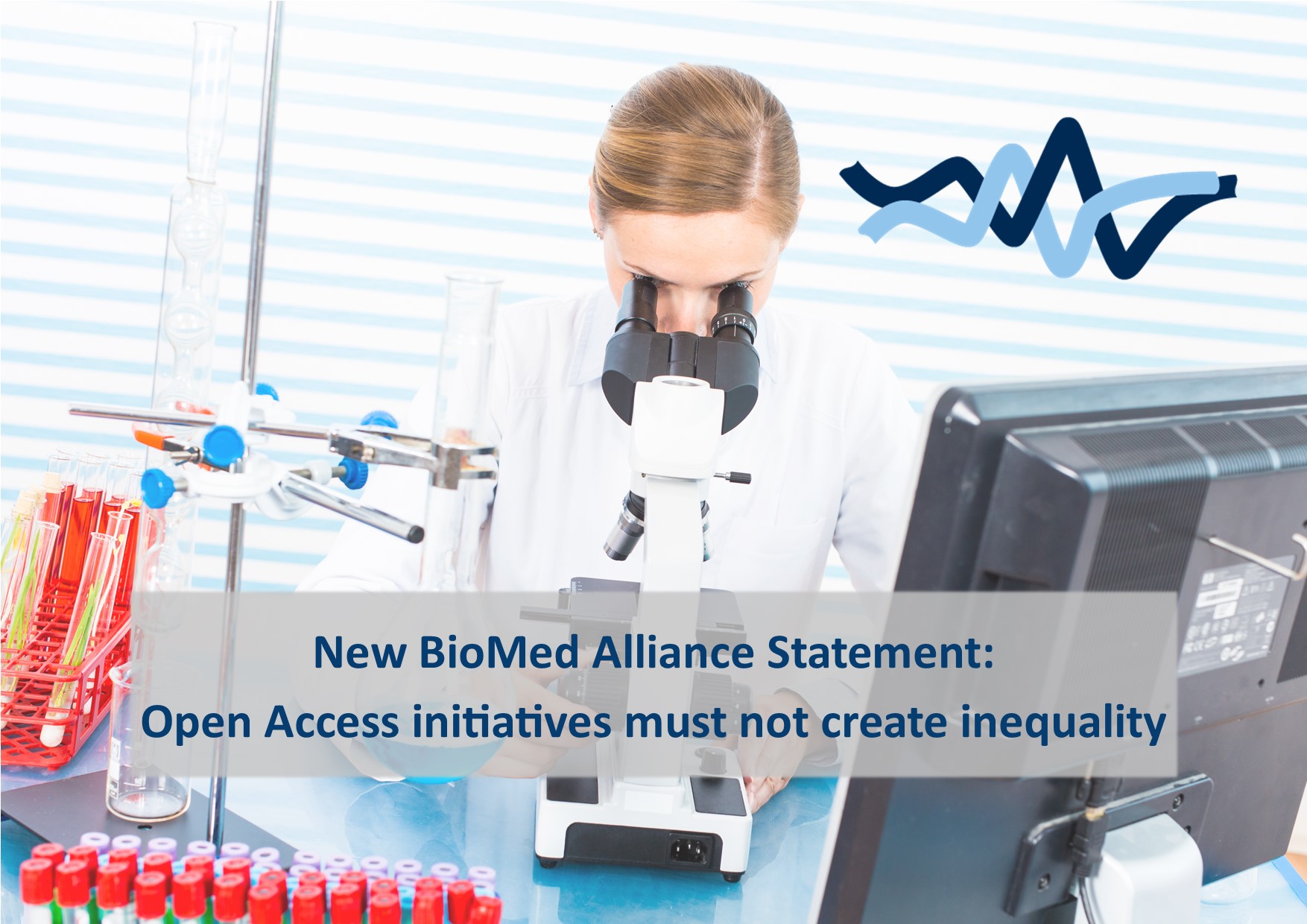
In a new statement published on 5 October, medical societies from the Open Access Transition Working Group of the BioMed Alliance highlight a series of concerns around Plan S. They also express their support for a European Research Council statement from 20 July stating the ERC’s concerns around this open access initiative and announcing their withdrawal from cOAlition S.
The main concerns of BioMed Alliance regarding Plan S are focussed on the consequences for: researchers (including inequality and rising costs), guaranteeing the quality of research (especially in health research) and hybrid journals (which play an essential role in informing health care professionals through medical society publications).
The full statement is available here.
Update September 2020
- Details
Our September Update is out now, providing an overview of the latest news about EU Affairs and the BioMed Alliance. In this Update, you will find more information on: the focus on health in the State of the European Union, our recent HTA Statement, the need to address bureaucracy in clinical trials, a new course on COVID-19 Skills, the soon to be established Innovation Forum and upcoming BioMed Alliance events. We have also launched a new section with news from BioMed Alliance members.
Read the update here
Reducing bureaucracy in clinical trials: now is the time!
- Details
Medical societies and patient advocates across disciplines call for urgent action to make clinical trials less bureaucratic and more patient-centered, efficient and cheaper.
Excessive administrative demands lead to rising costs and complexity, stagnation of clinical research in Europe, fewer academic clinical trials and limited access to innovative treatments. Unnecessary, inefficient, overly complex or ambiguously worded regulations, guidelines, safety reporting requirements and informed consent procedures pose a threat to exactly that which they were designed to protect: the quality of clinical trials and the safety of patients.
That more flexible, risk-based and pragmatic regulation is possible, without compromising either quality or safety, was demonstrated by the guidance issued by European regulators on the management of clinical trials during the Covid-19 pandemic. A substantial and structural reduction of bureaucracy in clinical trials must be the shared goal of clinical researchers, patient advocates, policymakers and regulators at EU and national levels, ethics committees and the pharmaceutical industry.
At stake is the efficiency and affordability of clinical trials, and with it the quality of future health care and – ultimately and most importantly – patient safety.
Read the statement here.
COVID-19 Skills Preparation Course
- Details
BioMed Alliance member ESICM is undertaking a training programme, financed by the European Commission, of a multidisciplinary pool of healthcare professionals supporting and assisting ICUs in times of need due to the COVID-19 pandemic. The training will provide intensive care medical skills to doctors, nurses and healthcare professionals not regularly working in ICUs and will be available cost-free across the EU and UK until the end of 2020. More information on registration is available here.

EU Health Summit 2020: Time for Action
- Details
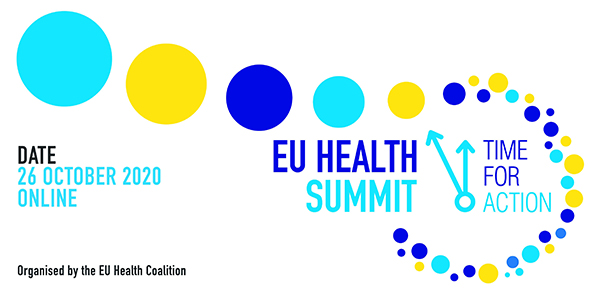
The next EU health Summit will take place online on 26 October 2020. The BioMed Alliance and its partners in the coalition have now confirmed a number of high-level speakers including Commissioner for Health Stella Kyriakides and Research Commissioner Mariya Gabriel. In addition, German Minister of Health Jens Spahn will speak to participants in a video message.
There will be 4 parallel break-out sessions which each focus on a different aspect of health policy: digital health and health data, healthcare systems, policies for health and research and innovation. The BioMed Alliance will lead a breakout session on Research Policy and is planning to organise an interesting panel discussion featuring researchers, policy makers and other stakeholders.
More information on registration and the programme are now available here.
The BioMed Alliance is looking for an intern
- Details
Update: We are currently no longer accepting new applications.
Would you like to join our small team and work on EU health policy? The BioMed Alliance is looking for a motivated intern interested in EU affairs to help us represent medical societies at EU level. More information on the position and the application process is available here.
Update August 2020
- Details
Take a look at our Update August for the latest news on the BioMed Alliance and EU affairs.
Open Access Transition Working Group
- Details
Description
The BioMed Alliance has created an Open Access Transition Working Group, which consists of representatives interested in publishing. They jointly discuss policies and initiatives related to Open Access publishing, such as Plan S.
The vast majority of BioMed Alliance members have a publishing programme, and together number around 70 journal titles. Within this portfolio, there are both fully open access journals and hybrid subscription journals.
Chair
Prof. Thierry Troosters
Highlights
-
BioMed Alliance Statement October 2020: Open Access Initiatives must not create inequality
In a statement published on 5 October 2020, medical societies from the Open Access Transition Working Group of the BioMed Alliance highlight a series of concerns around Plan S. They also express their support for a European Research Council statement from 20 July stating the ERC’s concerns around this open access initiative and announcing their withdrawal from cOAlition S.
The main concerns of BioMed Alliance regarding Plan S are focussed on the consequences for: researchers (including inequality and rising costs), guaranteeing the quality of research (especially in health research) and hybrid journals (which play an essential role in informing health care professionals through medical society publications).
The full statement is available here.
-
Panel Discussion Spring Meeting 2019
During the BioMed Alliance Spring Meeting on 14 May 2019, we organised a panel discussion on Plan S with the Plan S interim coordinator, a European Commission representative and experts in publishing from our member organisations.
The discussions on Plan S showed that medical societies still have many concerns about Plan S and that there are also certain misunderstandings. The conclusion was that further discussions are needed to ensure a smooth implementation of Plan S. We followed up during the General Assembly that same year with an update on the implementation, highlighting that the application was postponed by one year.
-
Plan S statement
In February 2019, BioMed Alliance issued a statement outlining its feedback on Plan S. The statement welcomes the initiative proposed by Coalition S and supports the promotion of open access publishing. Nonetheless, it expresses certain concerns about the scope and implementation of Plan S, which aims to promote open access and ensure that scientific publications that receive funding from its members are made freely accessible immediately upon publication.
BioMed Alliance calls for progress on EU-level HTA
- Details
In a new statement published on 3 September, the BioMed Alliance calls on the German Council Presidency to guide Member States into adopting a position on the Regulation for Cooperation on Health Technology Assessment as soon as possible. The statement also recalls a previous BioMed Alliance statement from 2019 calling for the proposal to swiftly be adopted. Since then, limited progress has been made.
Cooperation on HTA has numerous benefits for the European health system and could enhance coordination, reduce duplication, improve efficiency, reduce costs and lead to better treatments for patients. The coronavirus crisis has illustrated the importance of having a legally sound and functioning HTA system in place that could help the EU to prepare for future health crises.
Read the statement here, and our previous statement from 2019 here.
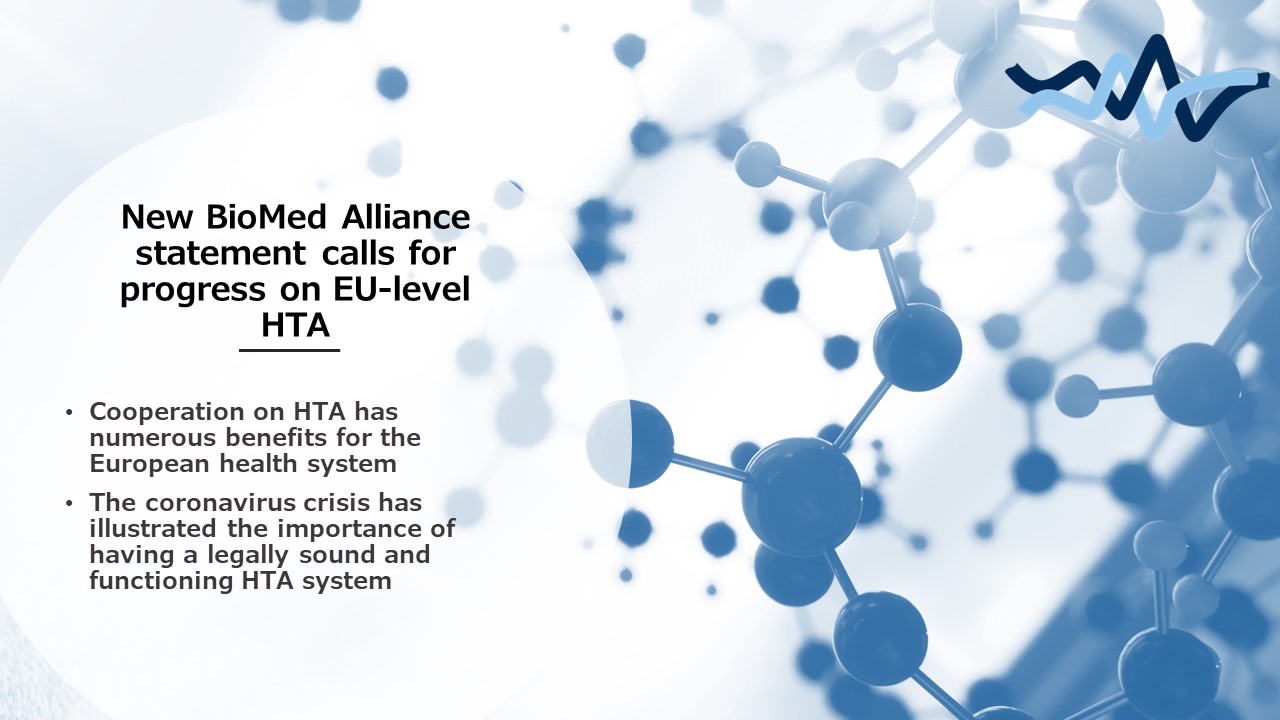
ESCMID joins BioMed Alliance
- Details
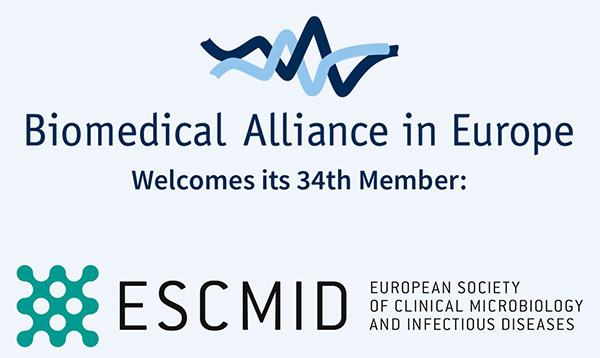
The BioMed Alliance continues to grow and is excited to welcome ESCMID to its membership base. The European Society of Clinical Microbiology and Infectious Diseases joined in the end of July. It is the 34th member of the Alliance.
ESCMID was founded in 1983 and its mission is to improve the diagnosis, treatment and prevention of infection-related diseases. This is achieved by promoting and supporting research, education, training, and good medical practice. It brings together microbiologists and infectious disease specialists and currently has more than 8,500 individual and 30,000 affiliated members around the world.
Update July 2020
- Details
A new edition of our newsletter is out, if you are looking for summer reading material then take a look at the July Update for the latest information on BioMed Alliance activities and relevant news around EU Affairs.
Save the date: EU Health Summit takes place on 26 October
- Details
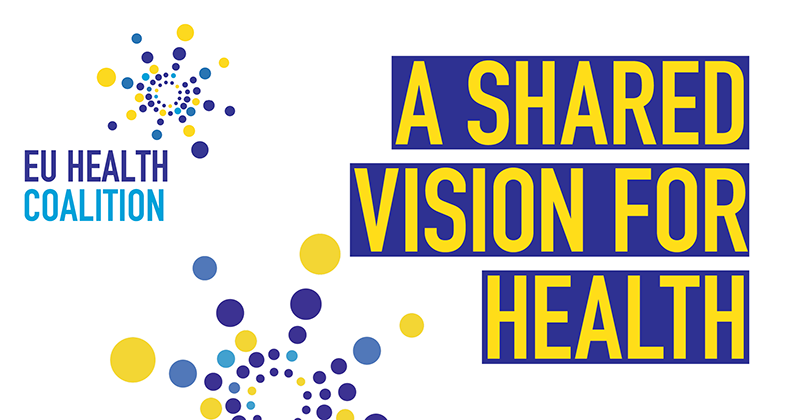
The EU Health Coalition, in which the BioMed Alliance is an active member and chairs the research & innovation policy group, announced that the next EU Health Summit will take place on 26 October 2020. It will be a hybrid event, bringing together high-level policy makers and stakeholder representatives from a broad range of health-related organisations both face-to-face and online.
The EU Health Summit will focus on the implementation of an updated version of the recommendations that were presented during the last conference in the end of 2018. It will reflect on recent developments and aims to involve the audience in the implementation of a range of recommendations for research & innovation, healthcare systems, health in all policies and digital health & health data.
We are currently working on the programme together with our partners, but take a look on the website of the EU Health Coalition to register and to follow the latest news: https://www.euhealthcoalition.eu/event/eu-health-summit-2020/
BioMed Alliance calls for rapid progress in IVDR implementation
- Details
The BioMed Alliance published a new statement calling for urgent action to ensure optimal implementation of the EU In Vitro Diagnostic devices regulation (IVDR). The statement calls on the European Commission to take into account a number of actions that should be completed as soon as possible.
The application date for the new regulation on 26 May 2022 is approaching and adaptation to the new regulatory system is time consuming and requires a concerted effort from the European Commission, Member States and stakeholders. At the moment there are many steps that still need to be taken to ensure the regulatory system will be ready to continue guaranteeing the availability of novel and high-quality diagnostic tests.
Read the statement here






